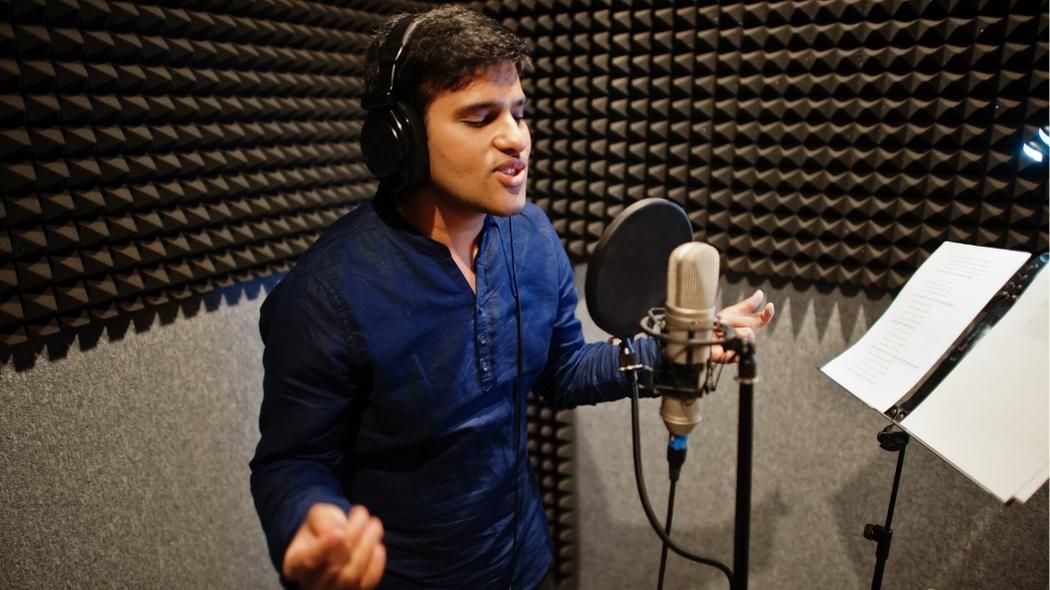The end of my French VO job ?
When I started as a voice actor in 2010, things were not what they are today. I began as a home studio artist, and at that time, it wasn't always well regarded—by studios or by experienced voice actors, freelancers who saw new faces entering the job market, self-employed individuals who sometimes lacked the skills or equipment to do this job. But ultimately, it was enough to listen to their demos for a few seconds to see they wouldn't cut it. No reason to worry...
At that time, several online training organizations emerged and became very successful. They promised you could earn a decent living from home, and the market was huge. The French language is one of the most spoken languages in the world. By writing your emails in English and armed with a few demos, you could attract international companies that localize their corporate films into several languages. The e-learning market was booming, and recording studios were constantly looking for new voices for local advertising. In short, the pie was huge, and when I mentioned my profession, nine times out of ten, the response was, "What is a voice actor?"
Things progressed quickly for me. In just a few months, I managed to land auditions, my website was well ranked, and clients began to approach me for quotes. But for voice actors who only work from home studios, word of mouth was far less effective than for those who travel to studios. No one knows your face; conversations revolve entirely around the work requested, and small talk about the weather is nonexistent. It often boiled down to:
"Hello, my client listened to your demo and decided to choose you for their project. Are you available for Tuesday? We'll refine the script and send it to you as soon as it's ready. Can we have your recording by Thursday at the latest?"
A few days later:
"Great, we received your file. Send me your invoice, and see you next time."
Yes, it’s essential to understand that voice recording is often the last step in a project. After that, directors and studios move on to something else. At that time, I sometimes recorded a corporate project a day! There was significant demand because it became fashionable for companies to produce a short 3-minute film each year to showcase their activities. The voice plays a significant role. It carries a brand, adds character, and reassures the listener. French translations are not always good, and the timing is often off, so I would make suggestions.
The implosion of Audiovisual and its transformation
Starting in the 2020s, this phenomenon began to show some cracks. We are overwhelmed by video in our daily lives. Whenever people have a few seconds of free time, they dedicate it to watching videos. YouTube influencers are cashing in by signing with major brands. Social media is taking up more and more space. People want testimonials, advice, and reviews from people like you and me who talk about their latest finds. TikTok is experiencing exponential success. Videos of several minutes are replaced by shorts of less than a minute. And where does voiceover fit in? There is a growing demand for young voices aged 25 to 30.
Another consequence is that advertisers increasingly request a "conversational" voice for their upcoming ads. They need "the guy next door" rather than actors with commercial voice melodies that are no longer bearable. Thus, corporate voices with straight, serious, inspirational tones are in decreasing demand. A new trend has taken off: Motion Design. A short video with simplistic 2D drawings and a voice that begins with "This is Sarah. This is Theo." Many jump on the bandwagon to the point where we quickly suffer from an overdose of these similar videos.
What happens next? Companies that once relentlessly renewed their annual communication budgets begin to reflect. Do these little videos really impact our clientele? I start receiving feedback from companies and directors who confess that corporate and motion design videos get very few views. Why? Because many people spend their time on social media... Let’s admit it: do you often watch corporate videos, even as a professional? People’s habits are affecting the professional world. Time spent on social media influences online behavior, leading more people to LinkedIn for communication. A quick post created in minutes on Canva, and that’s it...
What’s the consequence for a voice actor like me who hasn’t hopped on the social media train like LinkedIn or TikTok? An alarming drop in activity. I rarely post on social media. I admit I struggle to look at the news feed where everyone congratulates each other weekly for the "great job" they did. And of course, it’s all so politically correct: a spot on climate change, a video against harassment or violence against women, a company proud of its wonderful partners, employees proud to have such exciting and inspiring projects! And then there’s the constant polishing of egos. Voice actors congratulating each other with the same types of comments that could be copy-pasted indefinitely just to show off. Yes, we need to give a boost to colleagues to increase the "likes": "Wow, congratulations on this fantastic spot, your voice is amazing. It’s beautiful. What talent!" "I had a blast during the session; they loved it." "It was so much fun."
It sounds so disingenuous. Sorry if my language shocks you. All these actors scrambling to shout "Hey, I’m here!"
They are indeed actors, even in real life...
Recently, I signed up with a French voice-over agency. Over 700 candidates. Actors post tons of photos taken in a professional studio with, of course, gorgeous women in makeup, guys with salt-and-pepper hair, mysterious looks, and just the right wrinkles... Are we on a voice actor site or a modeling site? And of course, what exciting news! They all recently worked for France 3, the latest ad running everywhere on TV, a fantastic documentary on France 5, or the latest trending series currently airing on Netflix...
Honestly, I feel like I’ve become an old curmudgeon. The overexposure, the daily selfie culture, this star system of voice actors irritates me...
Do I have to conform to this prevailing hypocrisy? I force myself to post too. Why? Because when I respond to an audition, many companies have a nasty reflex: to check my LinkedIn. I receive notifications that they visited my page... and not my website, which has significantly fewer visits than a few years ago. In short, you have to be present everywhere, show that you have recordings constantly, that you’re doing great, that you’re super booked, that you’re happy, and that everything is perfect! Habits are changing. How many people take the time to search "voice actor" or "male voice over" on Google?
The COVID tsunami
Fortunately, I manage to secure contracts through auditions on Voice123, Voices, Bodalgo... but it’s difficult to find loyal clients with regular needs. So, it’s a constant battle in the daily quest for new clients. Here too, behaviors and habits are changing. You can’t imagine how many people no longer bother to respond to an email.
Then COVID hit. Major upheaval. Companies become hesitant, losing a lot of money. SMEs collapse within months, and some drastically cut their advertising budgets. A new wave of voice actors enters the market—people looking to supplement their income or change careers post-COVID. Fiverr, 5euros.com, Upwork, and other discount freelancer platforms flood the web, and yes, not all of them are bad.
Many new sign-ups. In the end, we sometimes find ourselves with 80 people auditioning when previously there were around 40. I, who was the second voice actor with the most jobs on Voices (over a hundred), am surprised to see guys appearing from nowhere and getting 200 positive reviews on Voices in just 2 or 3 years. Two actors are scooping everything up with an incomprehensible success rate! Wow! Another blow...
I had an exceptional success rate on the platform. So, how do they do it? Do they undercut their prices? Do they react faster than a flash? Good for them, and... too bad for me, unfortunately.
A typical example? Yesterday, I received an offer from Bodalgo.com. As soon as I got the email, I rushed to my booth to record a take of the script. In 4 or 5 minutes, I sent my response, and to my surprise, I was the 11th person to respond. Ten people ahead of me in just 5 minutes. I can tell you that in the 2010s, I would have been at the top. Yes, there are a lot of people now...
Today, I feel overwhelmed by these changes, even though I try to catch up because I have a family to support. I’m struggling to cope with this decline. It’s 2025, and I’ve received countless emails from agencies admitting they are getting far fewer requests for French voices.
There are also significantly fewer offers on these casting sites than before. Take Bodalgo, for example, which often sends only one offer per week... Sometimes one every two weeks! Yesterday, there was only one offer available all day on Voices, even though it’s late April, typically one of the best months for voice-over announcements.
I sometimes watch YouTube videos of American and Canadian voice actors who keep repeating: you need to respond to 40 to 60 auditions a day to hope to make a living. What a joke. If only I had 10 a day like in the good old days, I’d be thrilled. What happened?
Many mention the rise of artificial intelligence. That likely plays a role, but I also know that some voice actors continue to make a good living. There are marketing pros who manage to thrive.
They probably managed to get on board with the changes?
As for me, I continue to try to steer the ship back on course... Until when? I can’t hold on much longer. I spend my energy daily improving my demos, responding to auditions, seeking new contacts, reaching out to former clients hoping it will eventually pay off, but there has been no improvement for nearly two years now... I find it very hard to write these few lines... Hard to understand this sad reality...























